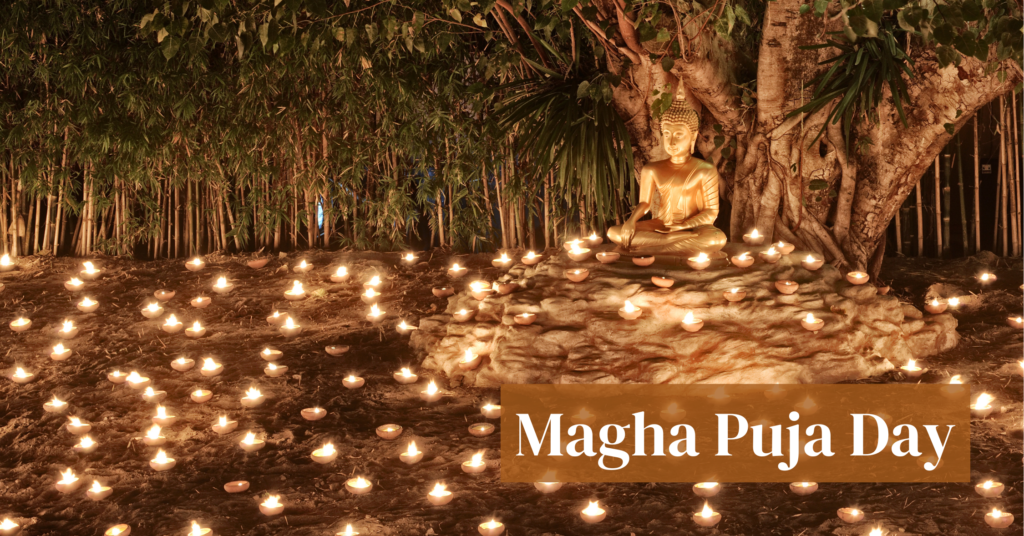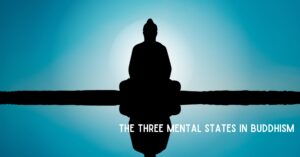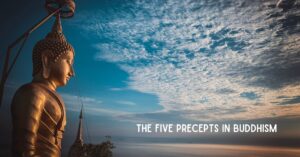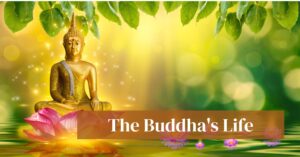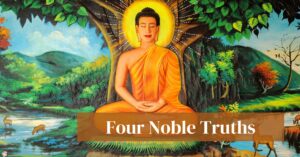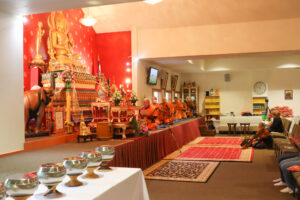 Magha Puja or Makha Puja, also known as Sangha Day or Fourfold Assembly Day, is a Buddhist festival commemorating when 1,250 arahants (enlightened disciples) spontaneously gathered to pay homage to the Buddha. This event is believed to have occurred on the full moon day of the third lunar month (usually in February or March) and is considered one of the most important Buddhist festivals.
Magha Puja or Makha Puja, also known as Sangha Day or Fourfold Assembly Day, is a Buddhist festival commemorating when 1,250 arahants (enlightened disciples) spontaneously gathered to pay homage to the Buddha. This event is believed to have occurred on the full moon day of the third lunar month (usually in February or March) and is considered one of the most important Buddhist festivals.
The primary observance of Magha Puja Day is the recitation of the Parinibbana Sutta, which is a discourse on the death and final liberation of the Buddha. The ceremony consists of offering flowers, incense, and food to the Buddha, as well as reciting prayers and chanting sutras. Many people also observe the day by visiting temples and monasteries to listen to sermons and teachings by the monks.
Magha Puja is also an opportunity for Buddhists to reflect on the Buddha’s teachings and renew their commitment to the Three Jewels of Buddhism: the Buddha, the Dharma (the teachings of the Buddha), and the Sangha (the community of Buddhist practitioners). The day includes practicing mindfulness and meditation, developing ethical conduct, and cultivating wisdom and understanding.
 Many Buddhists also take the opportunity to engage in acts of generosity and compassion, such as giving to charity, performing acts of service, or simply being kind and compassionate to others. The event aligns with the Buddha’s teachings of generosity, morality, and meditation as a path to enlightenment.
Many Buddhists also take the opportunity to engage in acts of generosity and compassion, such as giving to charity, performing acts of service, or simply being kind and compassionate to others. The event aligns with the Buddha’s teachings of generosity, morality, and meditation as a path to enlightenment.
Magha Puja Day is an important festival in the Buddhist calendar and a time for Buddhists to unite and celebrate the Buddha’s teachings and the Sangha’s unity. It also allows Buddhists to renew their commitment to the path of enlightenment and reflect on the Three Jewels’ importance in their spiritual practice.
